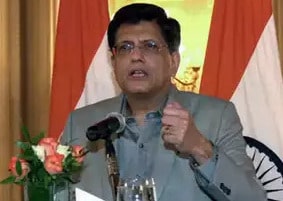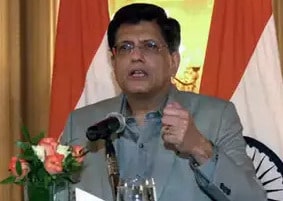
In a recent statement, India’s Minister of Commerce and Industry, Piyush Goyal, has announced that the country will provide a robust policy framework that includes retrospective changes. The move is expected to encourage investment in the country and help build a stable regulatory environment.
The announcement comes at a time when India is looking to attract foreign investment to bolster its economic growth. The government has been working towards simplifying and streamlining regulations to make it easier for businesses to operate in the country. The move towards a more robust policy framework is expected to further this goal.
Speaking to reporters, Goyal said, “We are committed to providing a stable and predictable policy framework that will encourage investment and growth in the country. This includes retrospective changes to policies where necessary. We want to make sure that investors have confidence in our regulatory environment and that they can make long-term plans with certainty.”
Retrospective changes to policies have been a controversial topic in India in recent years. In 2012, the government introduced retrospective amendments to the tax law, which resulted in disputes with foreign investors. The move was widely criticized and led to a loss of confidence in the country’s regulatory environment.
However, Goyal believes that the current government’s approach to retrospective changes will be different. He stated that the changes would only be made when necessary and after extensive consultation with stakeholders.
“We are not going to make retrospective changes arbitrarily. We will only do so when it is necessary to protect the interests of the country. We will consult with all stakeholders before making any changes, and we will ensure that the changes are made with due process and transparency,” he said.
The move towards a more robust policy framework with retrospective changes is expected to attract more foreign investment to the country. The government has been actively working towards improving the ease of doing business in India, and this announcement is seen as a step in the right direction.
The World Bank’s Ease of Doing Business 2020 report ranked India at 63 out of 190 countries, an improvement of 14 places from the previous year. The government has set a target of breaking into the top 50 by 2022.
The announcement by Goyal is expected to further improve India’s ranking and encourage more businesses to invest in the country. The government has been actively working towards improving the country’s infrastructure, simplifying regulations, and reducing bureaucratic red tape to make it easier for businesses to operate in the country.
The government has also introduced a number of initiatives to encourage investment, such as the Make in India initiative, which aims to make India a manufacturing hub for the world. The country has also been working towards attracting foreign investment in the renewable energy sector, with the goal of achieving 450 GW of renewable energy by 2030.
The move towards a more robust policy framework with retrospective changes is seen as a positive step towards achieving these goals. It is expected to encourage more businesses to invest in the country and help build a stable regulatory environment.
However, some experts have expressed caution about the move towards retrospective changes. They believe that such changes could discourage foreign investment and harm the country’s reputation as a stable regulatory environment.
“Retrospective changes can be a double-edged sword. While they can be useful in some cases, they can also harm the country’s reputation as a stable regulatory environment. Investors need to have confidence that the rules won’t change overnight, and retrospective changes can undermine that confidence,” said Rajat Wahi, partner at Deloitte India.
Despite these concerns, the move towards a more robust policy framework with retrospective changes is expected to have a positive impact on the country’s economy. It is seen as a necessary step towards attracting more foreign investment and building a stable regulatory environment.









